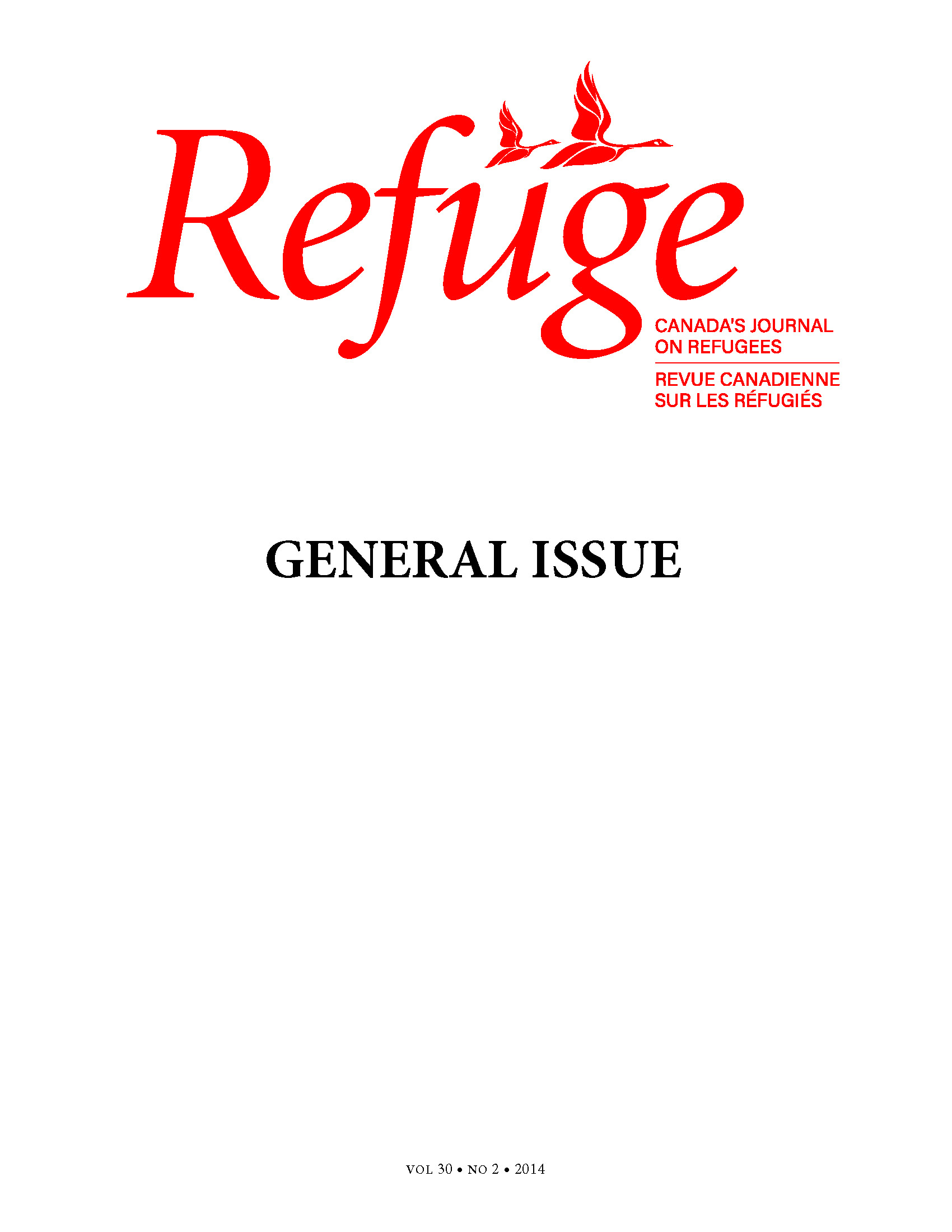“What happens there ... follows us here”: Resettled but Still at Risk: Refugee Women and Girls in Australia
DOI:
https://doi.org/10.25071/1920-7336.39618Keywords:
Australia, UNHCR, Women at Risk, refugee women, gender, violence, shame, resettlementAbstract
UNHCR’s Women at Risk Program is designed to identify and respond to refugee women at extreme risk in countries of asylum who are in desperate need of resettlement. Many women who have been resettled under this program have been raped or faced forced engagement in survival sex, forced marriage, pregnancy, and childbirth as a result of rape. Drawing on a decade of research undertaken by the authors across 18 international sites, this article explores the experience of refugee women at risk resettled to Australia. It discusses the impacts of sexual violence on their settlement, including those of shame and stigma. It identifies that, while for some women at risk, resettlement offers hoped for safety and protection, for others the abuses they faced prior to resettlement resurface and are compounded by new risks and violations of their rights. It introduces a risk assessment tool designed to assist service providers to identify and respond to these risks.
Metrics
Downloads
Published
How to Cite
Issue
Section
License
Copyright (c) 2014 Linda Bartolomei, Rebecca Eckert, Eileen Pittaway

This work is licensed under a Creative Commons Attribution-NonCommercial 4.0 International License.
Refuge authors retain the copyright over their work, and license it to the general public under the Creative Commons Attribution-Non Commercial License International (CC BY-NC 4.0). This license allows for non-commercial use, reproduction and adaption of the material in any medium or format, with proper attribution. For general information on Creative Commons licences, visit the Creative Commons site. For the CC BY-NC 4.0 license, review the human readable summary.







